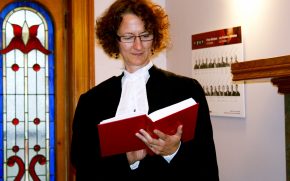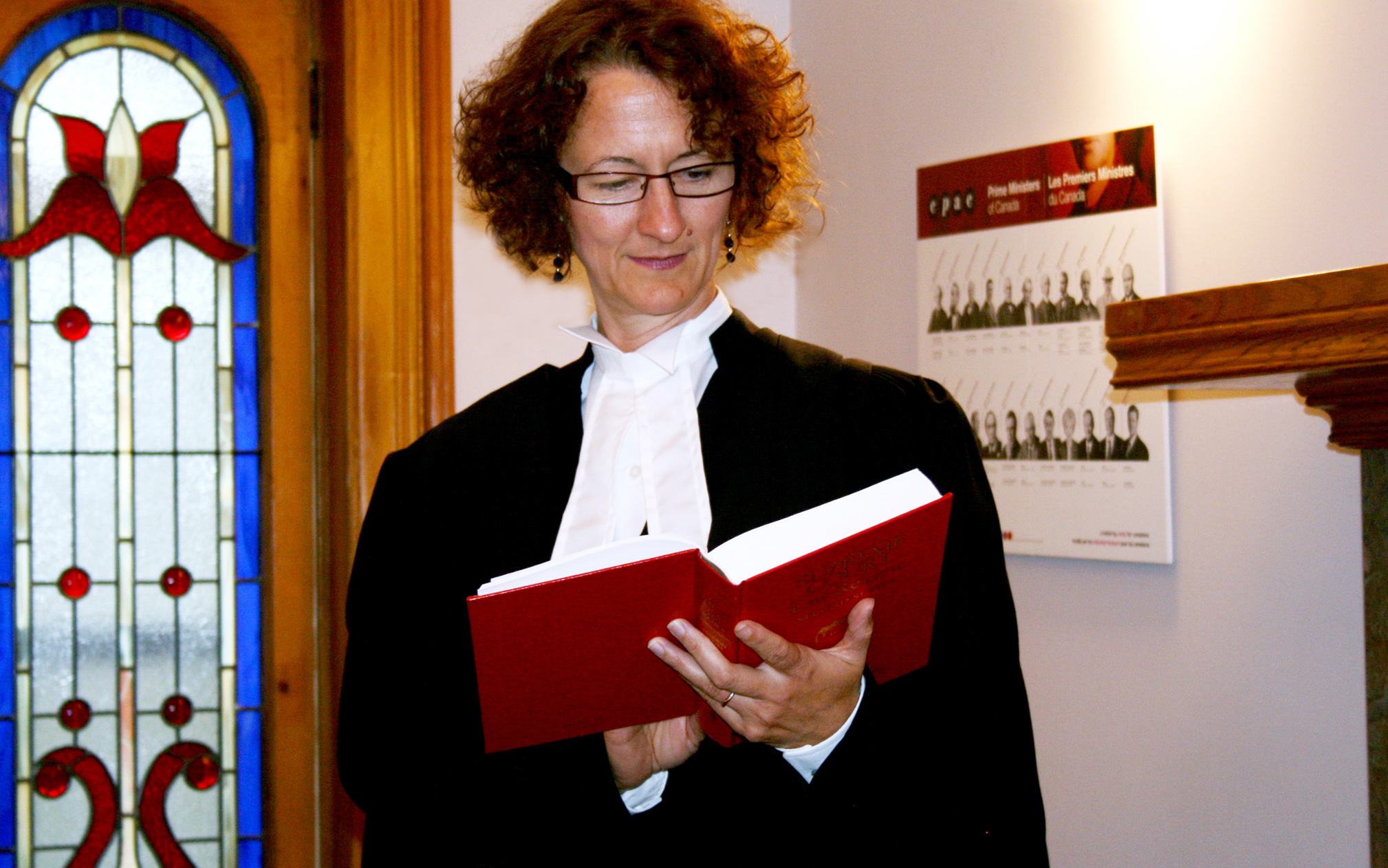
Janet Epp Buckingham, LL.D., Associate Professor of political studies and history and Director of TWU’s Laurentian Leadership Centre, who has been involved in the development of the Law School proposal
“Keep your head down and your mouth shut.” This is advice Christian lawyers sometimes give to Christian students heading to law school. But isn’t law school about learning to be an advocate and argue your position with integrity?
Unfortunately, the advice reflects the fact that many students find law school a hostile environment for the Christian faith.
Law students also find that issues that are deeply important to them, like the meaning of justice, are rarely addressed. They are told that law school is about legal process, rather than about abstract ideas like justice. Many law schools have strong social justice clubs but these are issues for outside the classroom.
Trinity Western University, in its 50th year, has submitted a proposal for a new School of Law to be located at the Langley campus of the university. Establishing a law school has been on the strategic plan for the university for many years and fits well with the University’s mission to develop Godly leaders for the marketplaces of life.
But the law school that TWU is proposing a different kind of law school. It will have all the traditional courses. But it will also allow students to explore issues related to faith in the classroom. These can include social justice and ethical issues.
All lawyers know that the practice of law includes a wide variety of situations that raise moral and ethical issues. How do you deal with an elderly woman re-writing her will to exclude one of her children? Should you, as a professional , intervene to ask questions about a potential family squabble.
How would you deal with a business client who wishes to breach a valid contract? While there may a way to do this legally, should you raise the potential business consequences of loss of reputation?
These are tough questions that can come up in day-to-day legal practice. But being able to discuss and debate them with peers in the classroom can help develop approaches before they come up.
Law has become increasingly important in Canadian society. As the role of religion has diminished, law has come to form the basic morality in society. Lawyers should therefore be trusted professionals.

W. Robert Wood, Ph.D., Provost (left) and Kevin Sawatsky, J.D., Vice-Provost (right) with TWU’s proposal for a law school
TWU’s proposed law program has two courses that will include aspects of the Judeo-Christian roots of Canadian law and the interface between law and religion.
TWU already has Schools of Business, Nursing, Education, Human Kinetics, Arts, Media + Culture, and Graduate Studies, as well as two Faculties of Humanities and Social Sciences and Natural and Applied Sciences.
The University’s strong student focus and Christian core will provide a unique environment for a law school. Issues of faith and the practice of law will be welcomed in the classroom. Regardless of one’s own faith perspective, the classroom at TWU is an open platform for engaging a diverse array of topics.
The proposed program is unique in other ways as well. The curriculum will have a skills focus, ensuring that graduates have the tools they need to get articling positions and be successful at the practice of law. They will learn to draft contracts and wills and interview clients.
The proposed program has more required courses than most law schools. This ensures that graduates have taken courses in most subjects that are necessary for being a general lawyer.
It also has required practicum placements. This means that students must get some experience in a law office or with an organization or government office before graduating. These will provide students with exceptional learning experiences.
TWU has a strong focus on excellence. Year after year, it comes out at the top of the list in student surveys in the Globe and Mail and Maclean’s for “quality of education” and student experience. This reflects the University’s emphasis on student-teacher interaction and a vibrant campus community
The University also has a strong service focus, with opportunities for outreach abroad and service to the vulnerable in the local community. It also has opportunities for summer travel study programs.
TWU has a unique Ottawa campus, the Laurentian Leadership Centre. There will be opportunities for law students to intern with political and government offices in Ottawa in the summer months.
Two TWU professors, Janet Epp Buckingham and Kevin Sawatsky, took the lead in the development of the proposal. Buckingham is the director of TWU’s Ottawa program, the Laurentian Leadership Centre. Sawatsky is the Vice Provost at the university and the former dean of the School of Business. Both are lawyers with experience in human rights and constitutional cases.
Plans are in the works to construct a new signature building on campus to house the School of Law if required approvals are obtained from the BC Ministry of Advanced Education and the Federation of Law Societies of Canada. TWU hopes to welcome the first class of students in September 2015.
